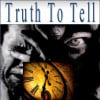Should Christian writers write horror or science fiction?
Should Christian writers write horror or science fiction?
I started writing a book about werewolf who transformed into a Christian. But now I wonder if this too dark of subject for Christian writer...What do thinkIf your story has a positive message I don't see why not. As you mentioned, your main character is transformed into a Christian, you're getting your message across.
It does end with a positive message and it is a story about a werewolf, so finding a way to keep it positive has been a challenge. Here is the link to the story that inspired the book-http://highvoltagewriter.hubpages.com/hub/The-Howling-Heart
- enjoy lifeposted 11 years ago
0
I don't see why not. Certainly nothing wrong with writing science fiction.
When it comes to horror you may find a lot of Christians think it is wrong but ultimately you need to follow your own conscience about whether it is ok, or whether it conflicts with your beliefs.
A lot of stories come down to battles between good and evil, which certainly fits within a Christian belief systemThis is differently about good and evil and the choice given to change from evil to good
I can't see that there would be any conflict with the bible here, as story telling is not lying. Your intentions are entertainment not trying to deceive your readers. The parables that Jesus told were fictional.
ChuckThe story that I have been writing has been sort of metaphor for my transformation from Occultist to Christian.
- RTalloniposted 11 years ago
0
A Christian can and should seek the mind of Christ on everything. Searching out the Scriptures and praying about what to write is no exception. I once heard someone put the concept very well in one sentence: "Ask God to give you a verse from His Word about it."
My personal position is to make no room for horror/terror topics as entertainment, but I can enjoy some science fiction as long as it does not teach or encourage error. Other Christians may feel differently. The thing is, it isn't about how we feel.
For Christians, it's about what God's Word to us teaches us to focus on and to promote in both our worship and our daily lives. It's about both the actual words of Scripture and the spirit behind those words, about learning His mind and heart on matters as we take the whole counsel of His Word into consideration when we pray about issues we face (rather than taking passages out of context to suit our own thinking/feelings).
We can know His desire for the steps we take and the plans we make, even in our writing. We can have His help with the questions we face if we seek it according to His Word. Doing that perfectly would make us perfect, which we are not, but we can even have His help in remembering to seek His mind about questions if we will ask Him for that help.
What do I think about your question? Avoid that which is dark. We have enough of it in this world. Seek, embrace, promote, enjoy, and pray for more of the light of Christ! His coming ushered in days of grace. We need to strive for the glory of that grace!Very good answer and is the reason why I been struggling with writing the book. However, I do still feel that this story can be used in a way to promote Christian concepts. Especially with those captivated by darkness.
I don't see any issue with this, in fact it's an interesting angle.
Just go for it!I have been "going for it" without thinking there was an issue until one Christian took offence to some of the pictures I would use to illustrate some of my articles. Here is the link to the story that inspired the book...http://highvoltagewriter.hub
- sheilamyersposted 11 years ago
0
I'm also a Christian novelist and I think your idea is unique enough it may grab the attention of non-Christians who might also enjoy the story. Believe it or not, non-Christians will read fiction containing Christian themes. If you truly believe God is leading you in this direction for your plot, who are the rest of us to tell you not to do it?
I'm not sure if you know this, but I learned it as I was doing research for the last hub I wrote. The original werewolf legends tell that one way a person becomes a werewolf is through being cursed. Is a person being cursed along the same lines as being possessed and other such things? I believe it happens. Well, in curses and such, not werewolves.
I really like your idea and would most likely read it myself. I'll end with another little fact. Ted Dekker and Frank Peretti, two of my favorite Christian authors, write novels that I feel fit into the horror genre and they are well received by the Christian community because of the positive and Scriptural messages contained within the plot.Hello sheilamyers, thank you for your input. Here is the link to the story that inspired the book. http://highvoltagewriter.hubpages.com/h … ling-Heart
Honestly, I think you would be fine writing in any genre. If you picked one that you didn't like, then you would struggle to write it whether you manage to get Christian values into it or not. And the most important part of writing is that YOU enjoy the story. Horror and Science fiction are particularly good fits for Christianity because many of them are grounded in the world we already know, one introducing the supernatural and the other taking place in the future. Since it is a real-world religion, it makes sense that it would be present for both kinds of stories.
I even saw a Christian fantasy novel once, though it was taking a 'millions of years in the future' stance, which is arguably science fiction. In any case, focus more on telling the story of your characters how you want to tell it. Chances are the values you identify with will come out in the writing without even trying.As a Christian novelist, I've asked the same questions. I think one of the greatest influences of Christianity on the world is its power to take what was darkness (or associated with darkness) and claim it for the light.
Many examples could be cited of beliefs, rituals, cultural and religious practices that have been influenced, changed and ultimately transformed from being cursed to sanctified.
Another point to consider as a writer (and a person), is that we can't be all things to all people. No matter what we write, somebody will have objections. But others may also benefit.
If you've prayerfully considered things, sought good counsel, and can find no good conscionable reason not to, then write.The Bible says 'worship God with spirit and "truth."' (John 4:23, 24) The problem the church has today is taking what God hates and using it in its worship. 'Bad as good' is wrong. (Isaiah 5:20; Malachi 2:17; 3 John 11) Something to think about.
I like some of the other responses you got to this question
I say you should go for it
If you have any doubts about what you write, (like I do sometimes as a Christian writer and I can get into some pretty gnarly stuff), stop, then go over it with God and see where He leads you. For me, His leading has been to a LOT of deleting. However, some pretty strong stuff gets included as part of what happens in the stories that I tell. But I never waste an event or a word. Does the world need to hear "things like that"? MAYBE they'll only listen to God if they know He can meet them where they are. But make NO compromises! You asked a good question. I haven't written on this site in forever and yours is the only question that made me want to again. I think it's a good thing THAT YOU THINK! ;-)I am honored that I could help you decide to write on HP again. Personally I have a love/hate relationship with this site. When I first started to write the book I felt that I would be able to write such a book and still project Christian values.
It really is up to you and how you see Christianity. As for Science Fiction, one of the earliest and great writers of this genre, H. G. Wells proves himself to be a Christian or at least having an understanding of the one God principle in his ending of War of the Worlds. As for horror, I believe there are as many Christians or religious types of one stripe or another involved as there are any other group.
Personally I know of only a few that call themselves Christian and write such novels. It is interesting to note that Ann Rice stop writing about vampires when she returned to Christianity.
There was a time when a writer didn't have to advertise their religious beliefs. It was in their writing along with everything else. If you look for neon signs in novels saying I'm a Christian you'll be probably out of luck.
Horror doesn't have to be bad. But I don't believe a Christian should write about things which God hates (demons, witches, spells, werewolves, vampires, etc). Remember that a werewolf cannot exist without being cursed by a demon or witch or something else (same with a vampire). Deuteronomy 18:9-13
The Bible says that those with whom we associate mold our lives: if we associate with stupid ones, we become stupid; if we associate with wicked ones, we become wicked. Proverbs 13:20.
What we choose to take into our minds whether via movies, books, or actual actions is a part of "association". We are identifying with what we read/write. If we constantly read/write about things which are disgusting to God (misuse of blood (vampires), satanism (vampires, werewolves, witches, voodoo, some zombies etc), excessive violence (Psalm 11:5), and the like) then we are choosing to associate with those murderers, vampires, demons, werewolves, etc even though it's only in our "fantasy" life.
"A little leaven ferments the whole batch (of bread)" says 1 Corinthians 5:6. We are tainted by the taint which we take in by reading or writing. If we keep associating with the things which God hates, then we cannot truly be God's friends and therefore we cannot be Jesus' friends which means that we are not truly "Christian". We need to hate what God hates and love what he loves.
Each person much choose based on their Biblically trained conscience. I hope this has been of some use to you.Good answer-and yet I do believe that writing about such things as werewolves can reach young people who may not respond to books of a more mainstream Christian view. C.S. Lewis and Tolkien wrote of wizards witches and such.
If you want to get rid of violent/bloody literature in which some very terrible things occur between people, than one of the first books that should be removed from your shelf is the bible. Writing is an art. Don't be afraid to treat it as such. Be honest and genuine in your writing. You can employ the use of nearly any genre to convey the message that you wish to deliver.
Thanks for the input, I appreciate it!
I think that this is something to take to God. If the impact of the story instills an unhealthy fear or a fascination with horror, I would recommend re-examine the story for a more positive impact.
If the story encourages people to seek the things of God, I'd say you're on the right track.It does have that element to it and yet, that happens at the end of the book and it does have lot of supernatural aspects, both positive and negitive.
I don't see any issue with this, in fact it's an interesting angle sir.
Thank you for comment and do think I am writing something that is unique that has not been seen in a book of this nature before.
While I don't subscribe to your religion I can see a perfectly good angle in the Werewolf to Christian angle as a straight allegory for the spiritual journey from atheist to believer.
I also think there is plenty of mileage in re-writing the parables into more modern stories.My werewolf was a Pagan before his conversion, and he did not become werewolf from a curse, but was raised to be a shapeshifter.
Many see the ability to write as a gift. For those who are of the Christian, this could be seen as a gift from God if you will. I'm thinking that your God will have gifted you your abilities, and to try and stop them from coming out would be an affront.
Your idea for the book - whilst it may be a thing that the God of the Bible perhaps frowned upon, you are also giving the character an outcome that would I guess be pleasing to God - a new follower, someone turned from the 'evils" to the good.
As an agnostic - I feel if you have a gift for writing, whatever the genre, then do so.God gave man the right to choose between good and evil. Your choice in the end does not release you from your commitment to him. If you are of God you will do Godly acts.
Chuck
- tsmogposted 11 years ago
0
[Insert Disclamer here]
I like any writing idea. First, in my humble view is you have to consider who the audience is. The audience and the readership are two entirely different concepts. Consider for examples the Narnia series by C.S. Lewis, Haven of Dante: The Staff of Moshe by Leonardo Ramirez, and even the Lord of the Rings. The Inklings authored works of fantasy while touched on sci-fi and many were Christian Authors. Two Inklings - J.R.R. Tolkien and Hugo Dyson were instrumental in the conversion of Lewis from atheism to Christianity.
The audience can be just yourself exploring something with any genre for personal learning and understanding. Or, it may be a person(s) or group of people. With your example if the audience are fellow believers with the same belief system, doctrine, etc. that may be limiting or it may suffice. The audience may be very critical, yet more than likely they will have specifics for either side of the fence. Christianity is very diverse with denominations & their doctrines of beliefs, faith, and others like dogma.
The readership is any in the marketplace of distribution. That is something that offers more criticism possibilities. Those can be of any belief system, have different lore and legends contrary or of like, differ from the audience with greater diversity and age groupings, and simply may read for pleasure and not care of inferring or directly relating to the written work's purpose - Christianity. They read because they like to read something interesting or a good story - nothing more & nothing less.
Consider 'should' related to morality and ethics. Morality is of the person & ethics is of a grouping. There again we see audience and readership brought to life. With 'should' the question as an observer does 'should' mean 'a' Christian writer personally = moral consequences or within groupings = ethical question and consequences.
The writing idea to me humbly speaking is allegorical. Allegory is a theme in the Bible. What that means I dun'no. Metaphors too. Transformation is what I hear you saying. The metaphor is a werewolf with characteristics of both human & inhuman. Is that not the case of a sinner not a believer? The allegory is the means of transformation from a character to another while the realization of physical characteristics is not changed. There is a spiritual or of the soul occurrence of change. That is biblical too. (broadly speaking & if publishing the readership is a broad marketplace).Very good answer, thank you for your feedback!
Even werewolves should be free to find redemption.
I write science fiction and even have some biblical stories in my latest book, "Entropy's Children" (Carl Martin) available at Amazon for Kindle and free Kindle software.
If people can find Christ through inspired writing, that's great.
The danger, of course, is losing one's way and writing something that is not of the spirit. We all face that challenge, but we need to face it with faith.This is not something wrong.You can write about anything that interests you as long as it doesnt change your religion or faith in God and Jesus.
The problem that I am having is that to try and make the novel more authentic, I go into great depth in Occult practices for I could not see another way to write it.
I think that knowledge is good - it does not mean you will take up those Occult practices, just that you know of them. Ignorance is dangerous, and in the case of a novel - wouldn't work without the background knowledge of the occult, or Christianity.
A writer should write what they want to write, not what others expect them to write. Allow the character to form and develop as you write, your own ideals and beliefs will come through as you write.
I think it would be a great idea. I wrote a short story about a Vampire who became human again after he met and then saved a woman. This character is now being developed for a book series I'm working on and I think that your idea of bringing in religion is a great way of bringing morals into the story which is something I want to do.
As a Christian morals are important. Showing that no matter who your are you can become who you want to be and that not all that seems evil really is is a great way to look at the world. Its the don't judge a book by its cover analogy.I don't think it really matters if a genre is too dark for Christian audiences. Look at Christians J.R.R. Tolkien (Lord of the Rings trilogy) and C.S. Lewis (The Chronicles of Narnia). They revolutionized epic fantasy as we know it today. Orson Scott Card (a Mormon) wrote one of the best sci-fi novel series (Ender's Game). Flannery O'Connor, a devout Catholic, wrote Southern Gothic short stories that classically fit into the horror genre. These stories dealt with some pretty dark material.
Your job as an author is to tell a story about characters we care about. If your character is a werewolf who becomes a Christian, then that's the story you should write. If the very idea excites you to no end and you are typing furiously, then there's your answer.
Are there people out there who insist that horror/sci-fi/fantasy are genres Christian authors (and readers) should stay away from? Absolutely but that's their issue. You're not writing for them, You're writing for people who enjoy Christian horror/fantasy/sci-fi (believe me, they're out there).
Personally, I would love to read your story.I know this is an old question but I'm answering it because no one pointed out that there is an entire genre devoted to this type of writing that's called Christian horror. A lot of popular fantasy that includes werewolves and vampires has a somewhat standard mythology in which the Christian God has to be portrayed as real for the stories to have internal logical consistency.
I'm not religious but I'd think that anything requiring Yahweh, Heaven, and Hell to be real to hold up the story would be supported by Christians. It's making the statement that their God is real and their beliefs are right.I am a devout Christian and I really don't see an issue with it, unless there is something that you are not mentioning that would change my mind.
Related Discussions
- 37
Is it wrong for a Christian to write ghost stories?
by Joel Diffendarfer 7 years ago
Is it wrong for a Christian to write ghost stories?I have always loved to read and write ghost stories (not gore). I consider my self a born again Christian. Do you think, as a Christian, it is "wrong"? I personally do not. In all of my stories, "good" wins...
- 279
Out of all the religions in the world, why is Christianity the right one?
by Dwight Phoenix 10 years ago
Out of all the religions in the world, why is Christianity the right one?Firstly Yes, I am a christian and a very passionate one at that. I don't want to cause any stir with this question but I only seek new responses that I myself may not already know..You see I was asked this question Last week...
- 13
Which is easier for you to write: poetry, articles or fiction?
by Eugene Hardy 13 years ago
Which is easier for you to write: poetry, articles or fiction?For myself, I find it easier to write poetry and the hardest to write science fiction.How about you?
- 216
Would a Christianity Without Hell be More Appealing to Atheists?
by Robert Erich 13 years ago
I have noticed that many atheists and anti-Christians (as can be seen from the most active forums on Hubpages), have a huge distaste for Christianity primarily because of the contradiction between there being a loving God and an eternal hell-fire for those who do not do what he wants.From my study...
- 507
Why do Christians think everyone else is wrong?
by Kitty Fields 8 years ago
Why is it that Christians believe that Buddhists, Hindus, Pagans, Native Americans, etc. are all wrong in their beliefs and that they'll all go somewhere horrible when they die? Why can't we just accept that other people have different lives and different experiences, and let them believe how they...
- 41
I'm beginning to wonder if Christianity itself is a cult!
by Yoleen Lucas 11 years ago
You guys - I posted this in the Questions section, but because it turned into a full-blown discussion, HubPagers advised me to move it to Forums. Here it is:"Cult" is defined as a system of beliefs that doesn't work, but people cling to it because they fear "eternal hell"...

























